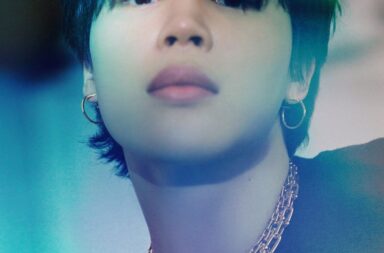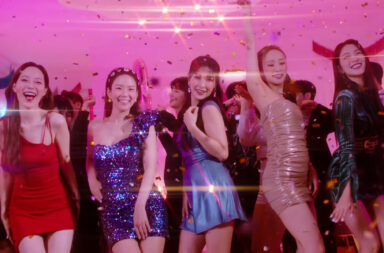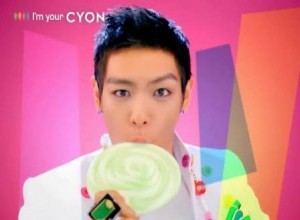 Look! It’s Gaya, and she’s about to do an exchange on another YG group!
Look! It’s Gaya, and she’s about to do an exchange on another YG group!
In light of their impending comeback, I thought a look at Big Bang and their career trajectory until now would be appropriate; like a recap of sorts.
Whenever I meet a new K-pop fan in real life, I’m almost always asked if I like Big Bang. In the beginning, I had no idea who they were at the time (I was a real SM baby), so I would just stare back blankly. I heard a lot about Taeyang and his wedding dress, but I felt no real compulsion to check him, them or the dress out until I chanced upon a K-pop news article about SHINee and f(x) releasing a song called “Lollipop” for an ad campaign.
It was being compared with Big Bang and 2NE1‘s version of the song, and my familiarity with YG‘s girl group piqued my interest enough for me to look up the MV. Well, I pretty much fell in love with”TOP“, and somehow found the MV for “Turn it Up”. Unfortunately, I was turned off by both the auto-tune and gyrating ladies (well, it was more the fact that they were just treated as props more than anything), and wasn’t too interested in delving any further into their discography. That is, until I saw a practice video for their performance of “Tonight“.
No continuous and complicated dancing, a sparse use of gimmicks, all those backup dancers sliding around and being human microphone stands, and above all, the fact that every movement was purely responsive to the music, like some rhythmic form of interpretive dance — suddenly, I’d found something in Big Bang other than T.O.P’s eyebrows that I liked, and it remains my #1 favourite thing about Big Bang. But, of course, that’s just me — what to the other Seoulbeats writers like about this quintet? I put my questions to Fanne, Ree and Maddie.
1. What was Big Bang’s competition like when they debuted, and how do you think it has changed since? What are the key differences?
Fannie: Big Bang experienced a fairly decent reception all the way from their early days in 2006, although they didn’t sweep the 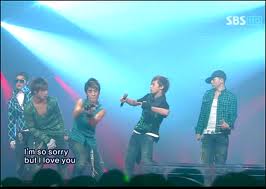 nation until ‘Lies” made it big in 2007. Their early recognition was helped along by a pre-debut documentary of their journey that had been aired on television prior to debut. It was also helped along initially by a unique promotional strategy in which the group released three EPs all within the span of their first few months of debut.
nation until ‘Lies” made it big in 2007. Their early recognition was helped along by a pre-debut documentary of their journey that had been aired on television prior to debut. It was also helped along initially by a unique promotional strategy in which the group released three EPs all within the span of their first few months of debut.
I think that the most obvious difference between the atmosphere then and now is that there weren’t as many groups in the market when they first debuted. In addition, Big Bang was a pioneer of sorts (1TYM and Jinusean brought hip-hop into the mainstream, but Big Bang melded it into the context of an extremely nicely packaged idol group) and their flashy hip-hop swagger easily was able to turn heads and help the boys stand out of the crowd. Although there was some healthy competition against them, (the most notable example being DBSK), the premises of these groups were vastly different. Nowadays, hip-hop concepts being used in boy groups is much more common (just looking at rookie groups — we have Block B and B.A.P who I think both drew influence from Big Bang’s style). However, I don’t feel that any of these new groups are really a threat to Big Bang’s turf because their legendary sunbae status, history, and experience go a long way in setting the boys apart.
Ree: When Big Bang first debuted back in 2006, naturally the whole idol group scene was a lot more low-key. Back then, Super Junior was still irrelevant, and their biggest and only competition was really DBSK.
I need to disagree with Fannie though; I think when Big Bang started out they weren’t really anything impressive, or anything people took particular note of. Especially with bombs like DBSK in the scene. They weren’t absolute flops, but they were just there. I think they really broke through when they released “Lies” and “Last Farewell”, songs which were really ahead of their time (at least in the K-pop sense) — they’re probably the first idol group to really focus on the electronic sound, and in my opinion both of those songs would fit in seamlessly into the K-pop of today, so you can see how much they really did influence the whole pop scene in Korea.
As for the atmosphere now — although there are more idol groups, there isn’t much actual competition. Big Bang has reached a status where they’re above most other groups that are in the idol scene — regardless of material quality. But I will say that as a result they don’t stick out nearly as much as they did back in the day; but they seem more minimalistic now, which isn’t really a bad thing.
Maddie: I’m going to disagree with Ree on this one. Big Bang wasn’t incredibly popular initially but their reception was a fairly good one for a debuting group considering their first single sold 40,000 copies. Also, one can’t really place a debuting group alongside a group that has already established themselves. Big Bang debuted in 2006 (three years after DBSK and a year after Super Junior), out of the seven groups that debuted within that same year 3 have disbanded; Big Bang is one of the four left. BB’s debut was a reasonable one aided by their first performance being at a YG Family concert and their documentary show, but their present success as a group is mainly owed to their backgrounds in the entertainment industry prior to being signed and lengthy training periods, along with their individual talents and unique sound:
- G-Dragon (signed to YG at 12) had been in the entertainment industry since the age of 8 as a member of Little Roora.
- T.O.P. was an underground rapper and childhood friends with G-Dragon.
- Taeyang (signed to YG at 12) first appeared was in 2001 alongside Maddie for YG rapper Jinusean’s MV “A-yo” when he was 13. If you haven’t checked out the MV, do so. He’s the tiny thing in a number 9 Titans Jersey. So cute.
- Daesung began pursing a career as a singer in his early teens, overcoming his father’s opposition to focus on BB.
- Seungri was a member of Il Hwa dance team and first appeared in reality show Let’s Cokeplay: M.Net Battle Shinhwa (2005) in which Shinhwa was attempting to create a boy band that would be second to Shinhwa.
With so many debuts and comebacks, it seems there should be some level of competition but quantity doesn’t necessarily imply quality. G-Dragon and Taeyang went through a six-year training period, which began in their early teens. Their image and sound was unique then and still is now. Not only this, each member has something to bring to the table — be it as a dancer, composer, lyricist, or choreographer. Big Bang is an all around well-formed and talented group.
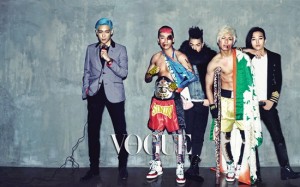 2. When Big Bang is mentioned, I find that Taeyang is most mentioned, followed by G Dragon-and-T.O.P (both mentioned an equal amount), and then, perhaps, our maknaes. What are the factors, you feel, that have led to Daesung and Seungri being the lesser known members?
2. When Big Bang is mentioned, I find that Taeyang is most mentioned, followed by G Dragon-and-T.O.P (both mentioned an equal amount), and then, perhaps, our maknaes. What are the factors, you feel, that have led to Daesung and Seungri being the lesser known members?
Fannie: First off, who is more “popular” depends on which part of the world you are from, and how involved you are in the fandom. There are different ways to be popular. Roughly speaking, I believe that GD is the most popular member within the fandom and within Korea (he has one of the top ten biggest fanclubs in Korea).
I would say that T.O.P is very close behind, and has been increasing in popularity lately due to his acting career (we have to remember that the film industry has a far wider appeal in Korea than the idol industry) in addition to his solo and GD&TOP promotions.
Internationally and outside of the fandom (or for more casual fans), Taeyang seems to have the most appeal, especially among males. He also has big fans in the hip-hop dancer community. Within Korea and within the fandom, he doesn’t have as much popularity.
I do feel that Daesung and Seungri are consistently among the least popular members both inside and outside of Korea, although that’s not to say that they don’t have large fanbases either.
Daesung is an interesting case because although he may not have the biggest fanbase by official numbers, he definitely has the broadest one. His overall image (that smile!), the fact that he sang trot, and the fact that he was on Family Outing made him into someone that is well-loved by older Koreans as well as young children, in addition to the normal K-pop fanbase.
Although when last I checked, Seungri had the second largest individual fancafe out of the five members on Daum, I still get the sense that he’s the least popular member. Part of it is because he was a late bloomer, and part of it is because the auras surrounding the other four members of Big Bang are just so strong. During his trainee days, Seungri was basically cast as the “dancer” of the group (him and Hyunseung), but because Taeyang pretty much snatched up that label from his solo promotions onward, it took a while for Seungri to really find his special role (besides “maknae”) within the group. He’s now known to the public for his confident attitude (a double-edged sword) and variety skills (although Daesung is more well-known for variety than Seungri), and within the fandom, he is also known for his ambition as well as for being especially attentive towards the fans.
Maddie: I feel this has more to do with exposure than anything else. How often an artist is mentioned does go hand-in-hand with how much they’re in the media or limelight. As already mentioned, each member has his own level of popularity, which varies by country/nation as well as age group. It’s not a surprise that T.O.P and G-Dragon seem to come as a pair. They’re both composers and lyricists as well as childhood friends and often work together. Taeyang is the lead vocalist and best dancer as well as a very hardworking individual so how often he’s mentioned is in effect of his qualities and role within the group. Daesung had a very rough year last year and whenever he was mentioned it wasn’t pleasant news and K-pop fans are more fond of either superficial scandal or “happy” news. So I feel this has affected his “popularity” on an international scale.
With Seungri, I feel it’s a bit different. His role within the group has always seemed to be “undefined” and he constantly has to prove himself. Considering that he was initially signed as a dancer but then replaced by Taeyang (who was signed as a rapper) and cut from the group in the ninth episode of their documentary, he doesn’t just have the role as maknae to deal with. He had to impress CEO Yang Hyun Suk in order to return, his solo was mainly to shed has maknae image and the fact that he has choreographed a large portion of Big Bang’s dances is almost unknown. He has a unique personality that does get him into trouble but he is also very ambitious and dedicated and that does get overlooked. From calls made to his fellow members in the show Taxi, one can get a good idea of his role within the group as well as his character. [Don’t have to show all but I think Taeyang’s best portrays how they all view Seungri and his character.]
Calls GD- http://www.youtube.com/watch?
Calls TOP-http://www.youtube.com/
Calls Taeyang – http://www.youtube.com/watch?
Calls Daesung – http://www.youtube.com/watch?
3. Although he’s having a world tour for BB, YG says he doesn’t believe in seeking fans out overseas via concerts like artists from other companies have done. Apart from seemingly contradicting himself, doesn’t this reflect a rather elitist attitude, and wouldn’t that affect his standing with fans, especially international ones?
Fannie: I don’t think YG’s intentions with Big Bang are to take over the world through mobilization. You can see even in his management style for his company that he likes to keep everyone close to his central headquarters, providing a private and safe environment for growth. He also likes having complete control over the situation; for example, there have been instances in the past when he has had his artists boycott shows because he didn’t want to compromise and yield to decisions made by others. His strategy has always been to create a valuable and quality product, keep it close, and have others (including foreign fans and producers) come calling for it for it themselves.
Having a well-established reputation and fairly exclusive name brand — as well as that slightly mysterious air — really goes a long way in piquing peoples’ interest. Like any game in a relationship, if you are too giving and accommodating all the time, your value decreases and your actions run the risk of being taken for granted over time. But by remaining slightly out of reach, it ensures that your presence remains a precious commodity, and that your value as a person (or a brand) never drops. Some may call it an elitist attitude (I don’t think YG is big on feelings), but you can’t deny that his methods have proven to be pretty effective over time.
Ree: Not really, I sort of understand where he’s coming from. I think it’s important to differentiate between what CEO Yang sees as the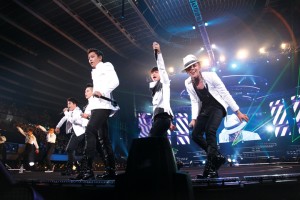 aim between World Tour concerts and ‘Hallyu’ concerts:
aim between World Tour concerts and ‘Hallyu’ concerts:
Big Bang World Tour: I think he believes it to be simply a concert for international fans of Big Bang. Fans who are already devoted to them and would be willing to come.
‘Hallyu’ Concerts: I think he means those concerts like Music Bank Paris, or Sydney K-pop Festival. Where several idols come together to perform for an international audience. I think CEO Yang feels that the purpose of these concerts is to gain new fans — which he doesn’t believe will work. His theory is that going out performing songs in front of a large crowds won’t help them gain new fans, and the way to get people into Big Bang is to produce good quality material and have a good promotional cycle. Which isn’t necessarily an elitist attitude, just one of ‘good music = fans’, which makes sense and is fair enough.
4. Keeping in mind where Big Bang have come from and their growth over the years, what are your expectations for their latest comeback?
(NB- this question was asked and answered before the release of Big Bang’s “Blue” MV on the 22nd)
Fannie: To be quite honest, I was a bit disappointed with their last album, as “Café” was the only song that ended up earning a permanent spot in my music collection. I felt like there something missing, and that the magic that I felt from back during the “Lies” days just wasn’t there. It’s interesting because I enjoyed their recent solo/duo promotions (namely Taeyang, Seungri, and GD&TOP) far more than Tonight.
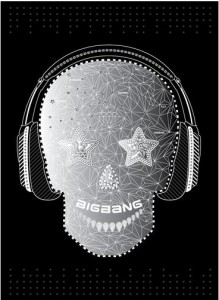 However, I do still have high hopes for this upcoming album. I think that not only has unique circumstance forced each member to grow and mature in their own way during this past year, but also that the hardships endured from the past year have united the members even more tightly than before, and they’re more driven than ever to prove to the world that they’re still standing strong. I also sense that they’ve regained a clarity of focus. I think that this comeback will be a particularly meaningful one, not only for the boys, but also for the fans.
However, I do still have high hopes for this upcoming album. I think that not only has unique circumstance forced each member to grow and mature in their own way during this past year, but also that the hardships endured from the past year have united the members even more tightly than before, and they’re more driven than ever to prove to the world that they’re still standing strong. I also sense that they’ve regained a clarity of focus. I think that this comeback will be a particularly meaningful one, not only for the boys, but also for the fans.
Ree: The issue I had with Big Bang’s last album was less the material, and more the fact they didn’t feel unified as a group. I’m not sure whether it was the slew of promotional activities as soloists, but rather than feeling like a Big Bang album, it felt like an album by five different individuals.
Tonight was a good song. I will not deny it that. But my problem with it was the fact, well, it was from Big Bang. And generally speaking they’re known for just shifting away from the status quo and it’s an unfair standard, but hey, standards exist. I think it could be the fact that back in the day, Big Bang was ahead of their time. Now that time has caught up, they stand out less. They’re still a fantastic band, and I still admire them, but music-wise they’ve lost the boom which really made people take notice of them the first time around.
—————
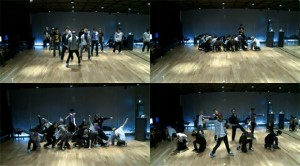 I have trouble deciding on a definite Big Bang bias — there are so many things I love about each member — but I can see why Seungri seems to the one I lean towards the most; I love an underdog, and Seungri is that underdog. I also admire how he’s worked hard over the years to reach the level that he has now achieved, and that really inspires me. Cheesy, I know, but its the truth. And now that I know that he’s responsible for my favourite aspect of Big Bang — the choreography of their performances — I think maknae has officially become my BB bias. Sigh. I feel so relieved now that this great dilemma in my life has finally been solved.
I have trouble deciding on a definite Big Bang bias — there are so many things I love about each member — but I can see why Seungri seems to the one I lean towards the most; I love an underdog, and Seungri is that underdog. I also admire how he’s worked hard over the years to reach the level that he has now achieved, and that really inspires me. Cheesy, I know, but its the truth. And now that I know that he’s responsible for my favourite aspect of Big Bang — the choreography of their performances — I think maknae has officially become my BB bias. Sigh. I feel so relieved now that this great dilemma in my life has finally been solved.
The number two thing Big Bang have on their side in today’s market is time. They have been around for a longer time than most current artists, and have had more time to build up an impressive discography, all of which has most certainly paid off for them in terms of success. The number one thing? Their ingenuity. Big Bang were pioneers in bringing hip-hop music into mainstream Korean pop culture, they were the first to embrace the electronic sound, and their best chance for continued success is innovation. Like Fannie said, there are a fair few hip-hop K-pop acts that are also talented, full of promise and who also have a hand in the production of their own music, so in order to stay #1, Big Bang need to stay one step ahead of the game by bringing something new to the table.
Their last effort, Tonight, didn’t quite seem to hit the spot though, judging by the responses above. The song “Café” is the song least like the others on the album; it’s something different, and it’s something that, if not everyone, at least some fans will want. Sure, Big Bang are the top dogs, but I am afraid that this whole exercise in exclusivity could turn into complacency that could end up leaving them irrelevant. I do hope this isn’t the case, though.
It seems a bit unfair to be criticising music that is still actually really good and well performed, but having great expectations of a great band is only to be expected. And for their comeback, my (and others’) hopes are quite great indeed: though there is nothing specific, above all, I want some of that aforementioned innovation there. I want to see the stuff the got Big Bang into the big time, and what will sustain them in future ventures. I also expect greater cohesion, and a more apparent group dynamic; considering the amount of time they’ve spent together these last months, I would be surprised it this weren’t the case. Oh, and more awesome performances (human mic stands FTW!)
So that’s my take on Big Bang; what about yours? Leave your comments below!
(BIGBANG, Daum via BigBangUpdates, KOREANMOVIE, tvN via ElectricLoveBB1, SBS)

